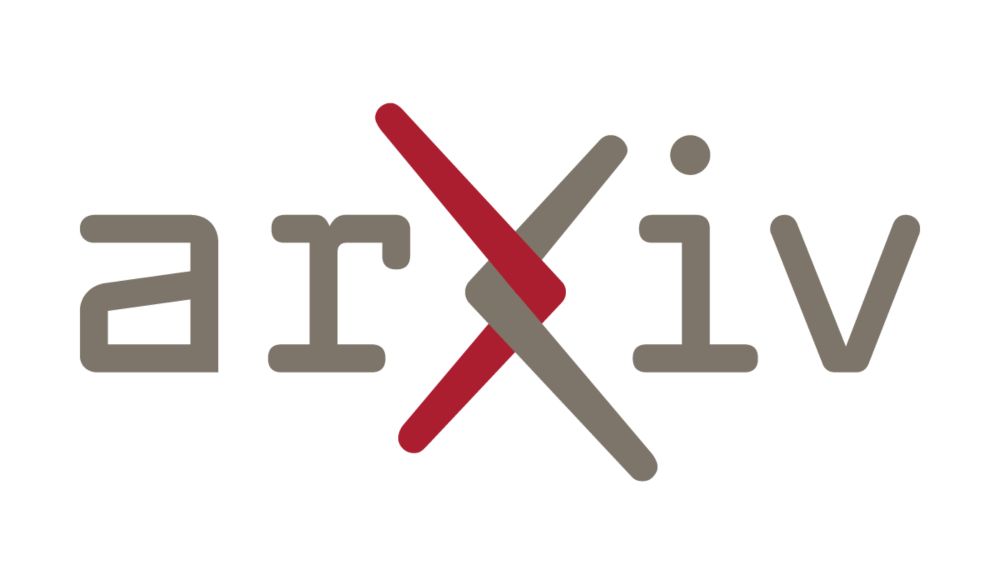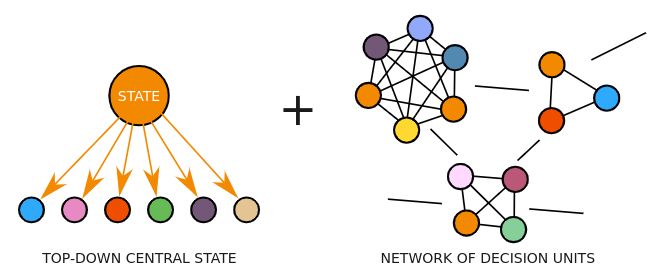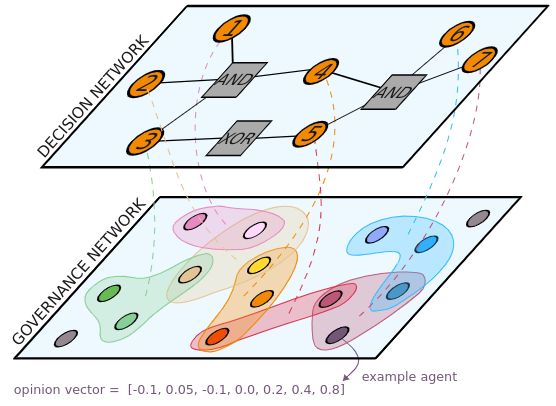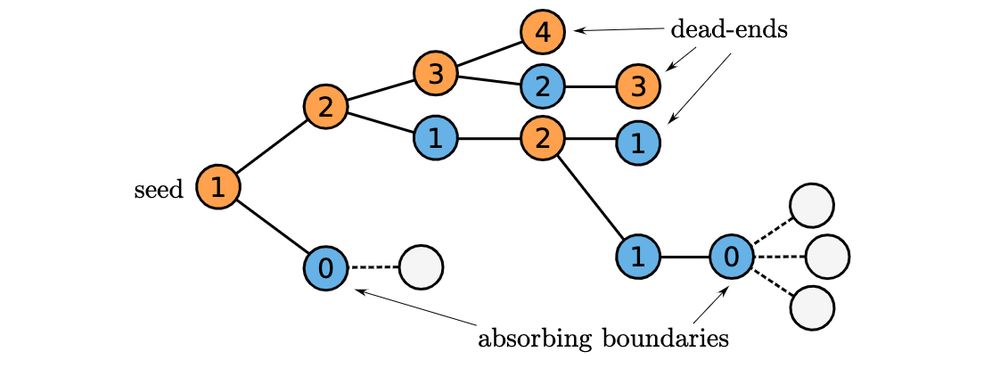
Here are your 10 -essential- AI prompts for academics ... make your life easy with help from @profserious.bsky.social profserious.substack.com/p/10-ai-prom...
05.10.2025 07:55 — 👍 117 🔁 37 💬 6 📌 14@giulioburgio.bsky.social
Postdoc @asanchezlab.bsky.social @ibfg.bsky.social Former Postdoc @vcsi.bsky.social | MSCActions PhD Fellow @urv.cat Physics of Complex Systems

Here are your 10 -essential- AI prompts for academics ... make your life easy with help from @profserious.bsky.social profserious.substack.com/p/10-ai-prom...
05.10.2025 07:55 — 👍 117 🔁 37 💬 6 📌 14
Really happy to see this out in PRX Life! There you can find an eco-evolutionary framework integrating the evolution of viral infectiousness and antigenic features. While the former determines contagion events among hosts, the latter tells us how quickly viruses can escape population immunity 1/4👇
03.10.2025 08:03 — 👍 11 🔁 7 💬 3 📌 0Excited about this paper and the interactive story to accompany it. Congrats @lhd.bsky.social @juniperlov.bsky.social @giulioburgio.bsky.social @sfiscience.bsky.social @unioflimerick.bsky.social and nice story telling @jstonge.bsky.social!
18.09.2025 18:59 — 👍 5 🔁 3 💬 0 📌 0Very cool interactive story, @jstonge.bsky.social!
"[...] real social cascades aren't simply branching processes with fixed rules." A self-reinforcing mechanism is what we propose in a recent piece led by the one and only @lhd.bsky.social.

It might start as a joke, belief, or rumor, easy to dismiss. But then it twists, builds momentum, and spreads like wildfire. Why do some ideas die out while others go viral?
A new study by researchers from the University of Vermont and the Santa Fe Institute offers answers: santafe.edu/news
Our team had an amazing week at @ic2s2.bsky.social in Norrköping Sweden and we will post pictures of our posters and talks soon - the big news is that we're so excited to host #IC2S2 in Burlington in 2026! youtu.be/p412S4GnPkc
24.07.2025 20:00 — 👍 29 🔁 15 💬 0 📌 0
There's amazing work on group effects in higher-order networks, but not a lot of connections to social ontology, collective action, and group selection.
Led by @jstonge.bsky.social with expert guidance of @rharp.bsky.social we reviewed and formalized these connections.
arxiv.org/abs/2507.02758

Defining and classifying models of groups: The social ontology of higher-order networks arxiv.org/abs/2507.02758
06.07.2025 08:52 — 👍 9 🔁 3 💬 0 📌 0Not sure we'll ever understand adaptive systems enough. But what we're sure of is that one basic reason is that you can't even start to describe them properly w/o preserving local dynamical correlations.
A fun and frustrating long way to go.
w/ the amazing @lhd.bsky.social & @gstonge.bsky.social.
During a pandemic such as COVID19, we hope (but fail) to accurately estimate the incidence of the disease. In this paper, we propose a new approach to machine-learn models of the real incidence from readily available information (tests and detected cases) dx.doi.org/10.1371/jour...
08.01.2025 17:12 — 👍 5 🔁 2 💬 1 📌 0
Cartoon of a top-down central state combined with a local network of decisions units.

Cartoon of decisions as a statisfiability problem (decision network) where each decision is solved by a higher-order network (governance network) of agents with their own opinions on what decisions should be made.
Some decisions are best made quickly and locally. Governance can work better as a higher-order network, not a pyramid around a central state. How should we design these networks?
We looked at this with law and complexity scholars and found "effective governance" networks.
arxiv.org/abs/2412.03421

We are thrilled to share our new pre-print, “Self-Reinforcing Cascades: A Spreading Model for Beliefs or Products of Varying Intensity or Quality,” now available on arXiv! arxiv.org/pdf/2411.00714
14.11.2024 14:05 — 👍 18 🔁 7 💬 3 📌 1